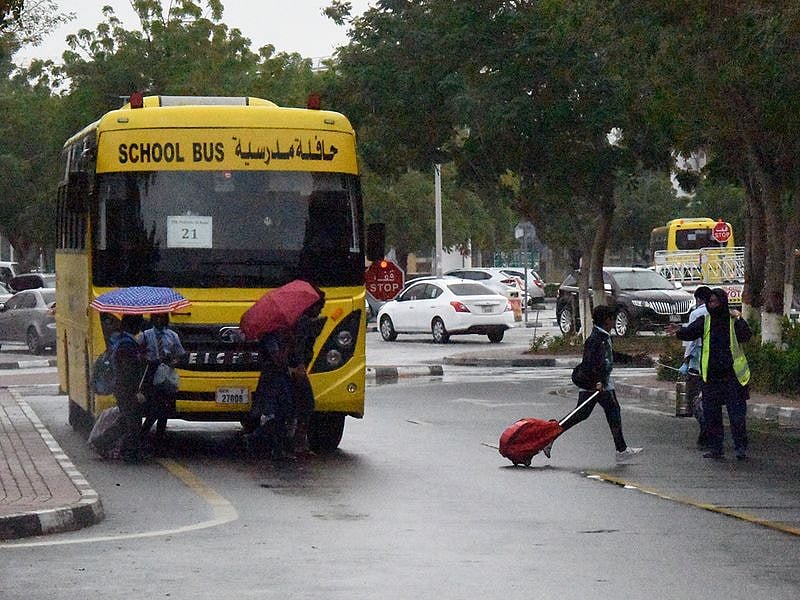UAE renews strict warnings on school zone traffic violations
UAE motorists warned — hefty fines, black points for school zone offences

Abu Dhabi: As every new school year begins in the UAE, authorities renew their warnings against traffic violations around schools.
Federal Law No. (14) of 2024 on Traffic Regulation, along with the Penal Code, stresses the importance of protecting students and ensuring their safety on roads and in school buses.
Common violations around schools
One of the most frequent offences is failing to stop at the “STOP” sign displayed by school buses. Drivers must come to a full halt when the sign is raised — whether they are behind the bus or approaching from the opposite direction.
Another common violation is failing to wear a seatbelt. The law requires all passengers, front and back, to buckle up, and the driver is held responsible if anyone does not.
Fake or altered licence plates
The law also penalises the use of fake, altered, damaged or unlicensed number plates. Such offences carry heavy fines and can even lead to jail time.
Other violations around schools include speeding in school zones, ignoring traffic rules, and stopping in no-parking areas outside school gates.
Fines and black points
Legal advisor Moataz Fanous said these violations come with strict penalties, including fines and black points.
Failing to stop at a school bus sign: Dh1,000 fine + 10 black points
Not wearing a seatbelt: Dh400 fine + 4 black points
He added that strict enforcement, increased traffic patrols, and awareness campaigns are all meant to improve compliance and boost road safety.
School buses and student safety
Fanous also noted that bus drivers and supervisors are legally responsible for ensuring all students get off safely. A quick check inside the bus, he stressed, “could save a life.”
Negligence can bring severe penalties, including fines, licence suspension or non-renewal, imprisonment, and in serious cases, closure of the school.
Fire safety in buses
From the 2025 academic year, all school buses in the UAE must be fitted with automatic fire suppression systems under standard UAE.S 5041:2021. These systems detect and extinguish engine fires automatically.
“Day Without Accidents” initiative
To mark the first day of the new school year, the Ministry of Interior declared 25 August 2024 a “Day Without Accidents.”
The campaign, held nationwide with all police departments, aims to improve road safety during the busy school return period.
Black point reduction incentive
The Ministry also introduced an incentive: drivers who commit to no violations on the first school day of 25 August 2025 will have four black points deducted from their record.
Drivers must pledge online, and if they remain violation-free, the deduction will be applied automatically by 15 September 2025.
Tackling repeat offences
Brigadier Hussein Ahmed Al Harthi, Chairman of the Federal Traffic Council, said the campaign is not only about safety on the first day but also about tackling repeated violations.
He urged drivers to wear seatbelts, follow speed limits, keep safe distances, avoid mobile phone use, and give way to emergency vehicles and official convoys.
Key traffic rules in Dubai school zones
Dubai Police also outlined strict rules and penalties for school areas:
Speed limits: 30–40 km/h. Fines range from Dh300 to Dh3,000. Exceeding by more than 60 km/h may lead to vehicle impoundment and licence suspension.
Stopping for buses: Drivers must stop at least five metres behind when a school bus raises its STOP sign. Fine: Dh1,000 + 10 black points.
Mobile phone use: Strictly banned while driving. Fine: Dh800.
Pedestrian crossings: Drivers must give way to pedestrians in school zones. Fine: Dh500.
Sign up for the Daily Briefing
Get the latest news and updates straight to your inbox
Network Links
GN StoreDownload our app
© Al Nisr Publishing LLC 2026. All rights reserved.
